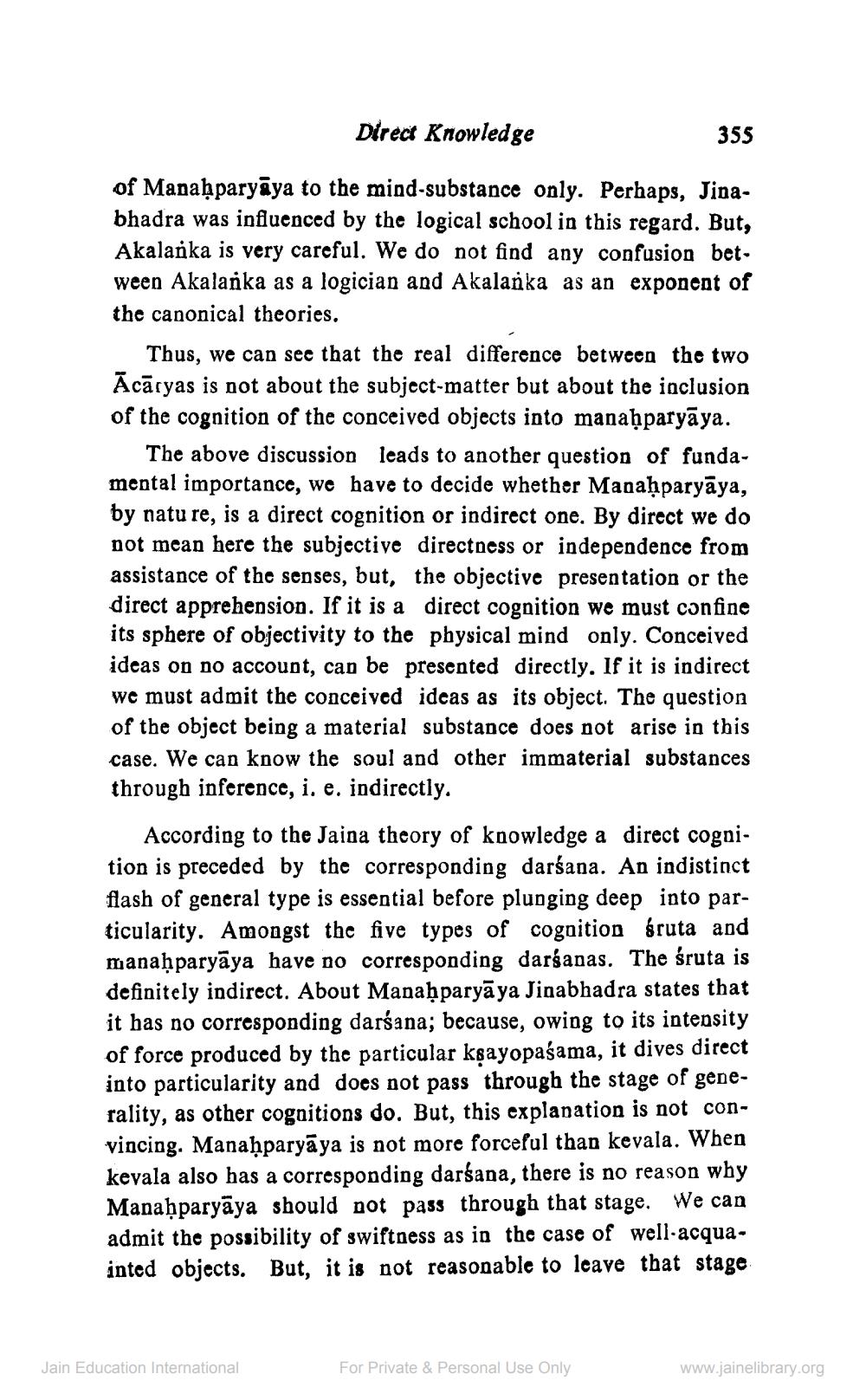________________
Direct Knowledge
355
of Manaḥparyāya to the mind-substance only. Perhaps, Jinabhadra was influenced by the logical school in this regard. But, Akalarka is very careful. We do not find any confusion bet. ween Akalanka as a logician and Akalanka as an exponent of the canonical theories.
Thus, we can see that the real difference between the two Ācāryas is not about the subject matter but about the inclusion of the cognition of the conceived objects into manaḥparyāya.
The above discussion leads to another question of fundamental importance, we have to decide whether Manahparyāya, by natu re, is a direct cognition or indirect one. By direct we do not mean here the subjective directness or independence from assistance of the senses, but, the objective presentation or the direct apprehension. If it is a direct cognition we must confine its sphere of objectivity to the physical mind only. Conceived ideas on no account, can be presented directly. If it is indirect we must admit the conceived ideas as its object. The question of the object being a material substance does not arise in this case. We can know the soul and other immaterial substances through inference, i. e. indirectly.
According to the Jaina theory of knowledge a direct cognition is preceded by the corresponding darśana. An indistinct flash of general type is essential before plunging deep into particularity. Amongst the five types of cognition sruta and manaḥparyāya have no corresponding darśanas. The śruta is definitely indirect. About Manaḥparyāya Jinabhadra states that it has no corresponding darśana; because, owing to its intensity of force produced by the particular ksayopaśama, it dives direct into particularity and does not pass through the stage of generality, as other cognitions do. But, this explanation is not convincing. Manaḥparyāya is not more forceful than kevala. When kevala also has a corresponding darśana, there is no reason why Manahparyāya should not pass through that stage. We can admit the possibility of swiftness as in the case of well-acqua. inted objects. But, it is not reasonable to leave that stage
Jain Education International
For Private & Personal Use Only
www.jainelibrary.org




